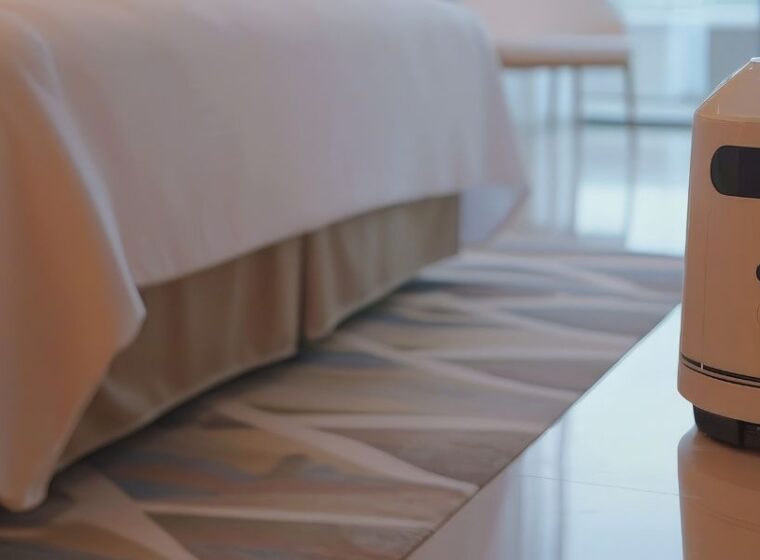Hoteliers are always looking for ways to innovate, keep guests satisfied, and drive more bookings. Strategically sound hotel operations don’t only maximize efficiency internally but can also help improve the guest experience and market it in creative ways.
There are various measures hotels can take to optimize their operations to reduce costs and maximize guest service. Hotels are finding ways to increase their margins and exceed guest expectations from improved labor strategies and automated processes to smarter purchasing decisions and technology investments.
1. Streamline Housekeeping and Accommodation Management Processes
The ambiance, cleanliness, and accommodations at your hotel all impact your ability to provide first-class hospitality experiences to guests. Applying simple systems like housekeeping checklists and hotel maintenance checklists effectively ensures cleanliness is up to standard and rooms are ready with everything that guests need. This also includes addressing the building’s lighting, elevators, conference rooms, and pool areas.
The persistent need for housekeeping and accommodation checklists requires significant time from your teams when using paper processes. Conversely, mobile lists via tablet or smartphone help streamline the time it takes teams to track housekeeping and accommodation management processes. Your teams can easily complete checklists faster and submit the status in real-time, thereby minimizing data entry and allowing managers to action results more quickly.
Additionally, teams can be empowered to deliver more efficiently and consistently by incorporating process guidelines, instructions, and photos into checklists. By providing a reference to your quality standards, you can improve team understanding and overall execution across the property.
2. Automate Operational Tasks and Keep Teams Focused on Your Quality Standards
Accountability is a pivotal driver of hotel operation performance. Even if your teams know their daily duties and responsibilities, it’s still beneficial to assign ownership of tasks so that everyone focuses on their specific responsibilities throughout the day. In the same manner that can digitize housekeeping checklists, leveraging software to automate tasks and reinforce standards is a valuable asset to optimize operational performance.
There are many options for hotel management software that can direct your teams to address daily operational tasks, as well as Top Hotel Management Software in 2021 [+Free Guide] that can prioritize their attention on your guests and the standards you wish to achieve. With the help of such platforms, teams can schedule and assign recurring operational tasks, like housekeeping, accommodations, property maintenance, and food safety checks. Staff members can be systematically alerted when a job should begin or when one has been missed, keeping them focused on meeting standards and keeping hotel operations running smoothly.
3. Strategize for Revenue and Budget Management
The hospitality industry is vulnerable to changing economic conditions and trends. Hoteliers must keep a close eye on economic trends and should be able to adapt strategies to drive higher levels of occupancy.
But it’s not all about modifying rates and inventory to counteract trends. Hoteliers and management teams need to be able to strategize long-term solutions for budget management and revenue optimization. Here’s a general list of hotel operations management responsibilities as it pertains to this need:
Study the market – Understand the market by studying your guests and your rivals. Gain insight into who your customers are, what traits they share, and what they are looking for.
Collect the right data – Identify the kind of data needed and develop consistent methods for gathering and organizing it. Focus on data that will assist you with anticipating demand and maximizing revenue.
Embrace forecasting and mapping – Go beyond simple forecasting by mapping out where demand originates, as this can allow you to target marketing efforts more effectively.
Adopt the best pricing strategy – Pricing strategies need to be influenced by your hotel’s offerings, your target market, and the demand.
Compete based on the value – Try to concentrate more on the concept of the value and compete with other hotels on that basis.
Optimize your distribution channels – Optimize your various distribution channels and messaging so that they demonstrate what your hotel has to offer.
Cross-departmental collaboration – Ensure that the individual departments are all aware of broader hotel strategies and are pulling in the same direction.
4. Embrace the Latest Hotel Technologies
Customer demands and guest expectations drive business, and technology plays a vital role in attracting hotel guests and enhancing their stay. Knowing which innovative technology to implement will translate into an experience that will drive real value for the guest. Free hotel WiFi is no longer enough to have a competitive advantage. Nowadays, offering guests a complete and digitally-enabled experience is expected among top hotels.
Hotels will also benefit when they update their day-to-day technologies to provide guests the best experience, such as their property management system. With such systems in place, hotels can increase room reservations and lower downtime spent on manual updates.
Additionally, hotel managers should consider staying on top of the latest in hotel technologies and keeping a watchful eye on competitors. Exploring new technology to support objectives and implementing cloud-based technologies can help improve hotel operations management and employee efficacy.
5. Enable Teams to Make Decisions That Help Improve Operations
Acquiring valuable insights is perhaps the most crucial piece of the puzzle when seeking efficiencies to improve hotel operations. Measuring hotel operational performance with paper, clipboards, and other tangible methods often results in data being non-centralized and difficult to access. With limited visibility into the measurement of daily operational performance, you and your teams lack the insights needed to make decisions to drive business improvement.
Mobile-enabled hotel software streamlines the collection and centralization of data from all locations in real-time. In turn, these platforms organize performance metrics and analytics in a way that provides a clear picture of what’s happening on a day-to-day basis. You can easily view trends, root causes of issues, and top and low performers without compiling spreadsheets and charts.
By identifying leaders and top performers of the company, you can enable those teams to instruct decision-making and share knowledge and best practices across locations to help drive overall performance. Motivating staff and enabling teams to better measure and access performance will empower them to help enhance hotel operations and improve the business.
This post is part of BlueprintRF’s entrepreneur series, a collection of articles intended to equip business owners and executives with the tools, information, and resources they need to thrive in the hospitality industry.









